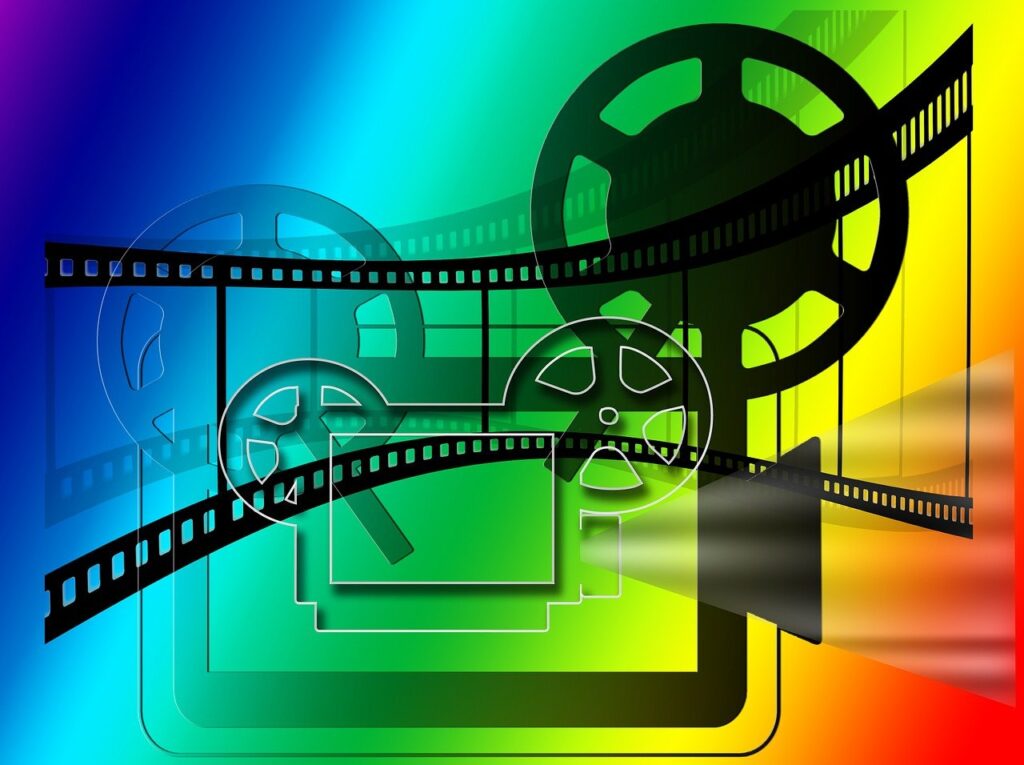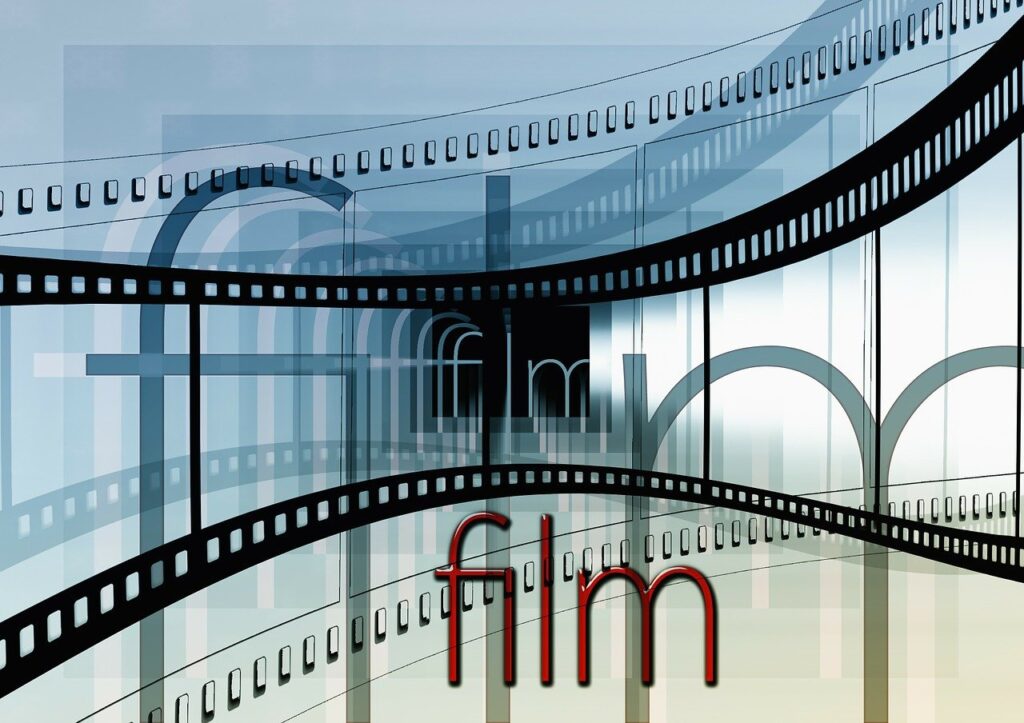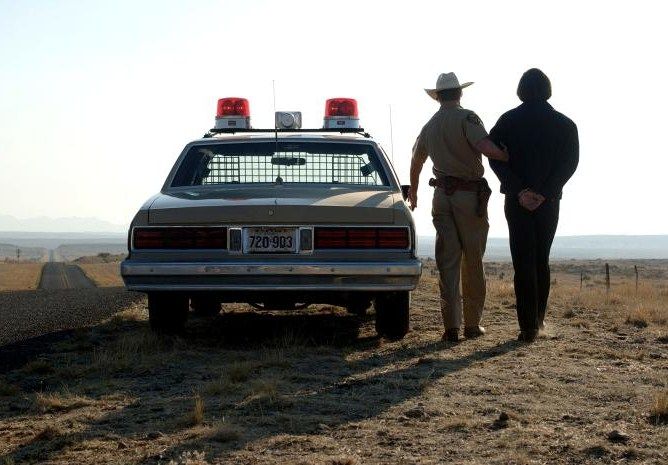Modern-day comedy has certainly pushed boundaries, often leaning into a brand of raunchy humor that revels in the scatalogical and gleefully R-rated. Think of recent hits like *Bridesmaids* or *Neighbors*, where bodily fluids and audacious scenarios are par for the course. Yet, for all their shock value, these contemporary films largely operate within a framework of evolving social norms, breaking barriers in their own right but often with a clearer understanding of what constitutes genuine offense.
However, if we take a stroll down memory lane, particularly to the 1970s and 1980s, we encounter a different breed of comedy. These were films that, in their time, might have seemed merely edgy or daring, but when viewed through a 21st-century lens, reveal jokes and premises that are vastly more shocking and, frankly, offensive. The humor wasn’t necessarily *more* offensive back then, but rather, the cultural landscape allowed for certain types of comedic expression that are now, thankfully, considered beyond the pale.
This isn’t about shaming cinematic history or canceling beloved classics. Instead, it’s an fascinating exercise in cultural anthropology, observing how much our collective sensibilities have shifted. It highlights a truth that seasoned media editors understand deeply: what resonates as humor, and what crosses the line into unacceptable, is constantly in flux. We’re about to embark on a journey through 10 such comedy films that, despite their enduring legacies, simply could not, and should not, be made today. These are the comedies we’ll never see reinvented, for reasons that speak volumes about our progress.
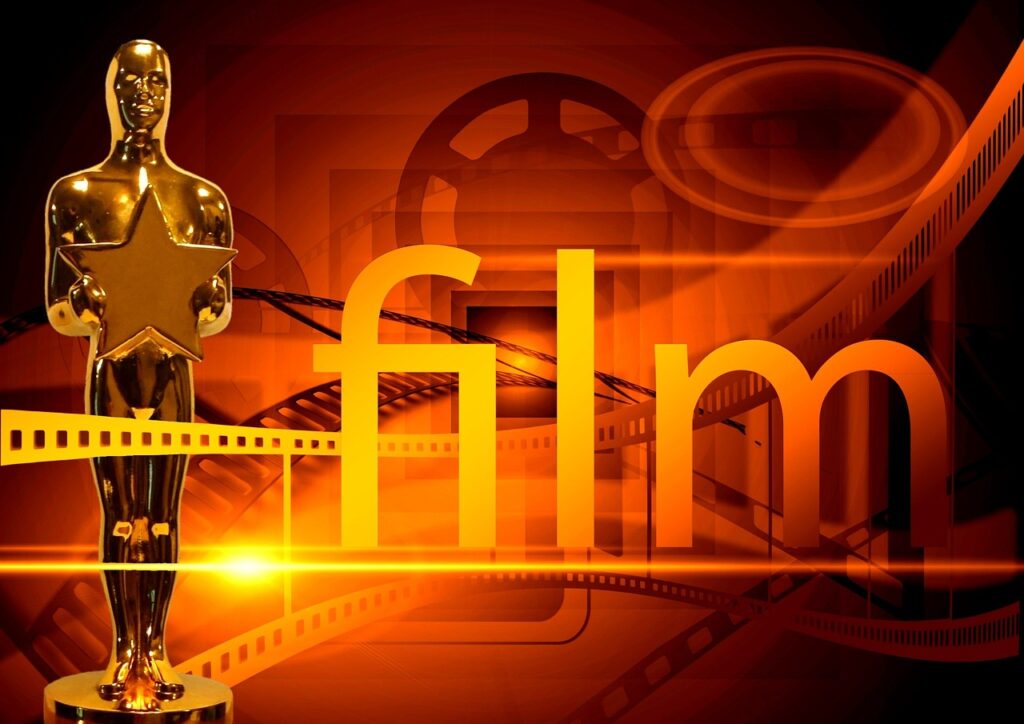
1. **Blazing Saddles (1974)**Mel Brooks, a true iconoclast of comedy, absolutely shook up Hollywood with *Blazing Saddles* in the mid-70s. This wild parody of the Western genre was a masterclass in satire, using outlandish humor to deconstruct racial prejudice and cinematic clichés. It’s a film that’s widely celebrated for its wit and audacity, often cited as one of the greatest comedies ever made.
However, the very first scene after the credits immediately confirms why this film is utterly unmakeable today: “the n-word is thrown around with heedless abandon.” Brooks himself has acknowledged this seismic shift, telling Variety that “We have become stupidly politically correct, which is the death of comedy.” While one might debate his latter point, he’s undeniably right about the former. The casual and widespread use of such a derogatory slur, even in a satirical context, would halt any modern production in its tracks.
Beyond the racial epithets, *Blazing Saddles* also featured humor that pushed boundaries in other uncomfortable ways. It’s famously known for an iconic, yet undeniably gross, sequence where cowboys engage in a lengthy farting contest around a campfire. Even more disturbing, there’s a scene where bandits are hired based on the terribleness of their crimes, with one character blithely admitting to liking “r—” twice in his qualifications. This combination of offensive language, crude humor, and casual references to heinous acts, even if intended for satirical effect, makes it a non-starter for contemporary audiences and studios.
Though credited in part to the brilliant Richard Pryor, the film’s script, as savvy as it often is, contains elements that are simply too far removed from modern ethical considerations to ever be replicated. Its historical context as a product of the 70s is crucial to understanding its existence, but it’s a time capsule that remains firmly shut when it comes to remakes or reboots.
Read more about: Hollywood’s Enduring Icons: Celebrating 10 Golden Age Stars Still Gracing Our World
2. **The Bad News Bears (1976)**When we think of kids and raunchy humor, our minds might jump to recent offerings like the Seth Rogen-produced *Good Boys*, a film about middle-schoolers trying to navigate the complexities of hooking up. In many ways, the very existence of films like *Good Boys* owes a debt to the pioneering success of *The Bad News Bears*, a movie that proved children could, in fact, be at the center of decidedly non-wholesome entertainment.
On the surface, *The Bad News Bears* appears to be a classic underdog sports movie: a ragtag Little League team coached by a washed-up ex-minor leaguer. But as its title suggests, these kids are indeed “bad,” and not in a cute, mischievous way. The film is brimming with “viciously foul language” from its young protagonists, alongside “rampant nastiness from parents and other kids.” It’s a raw, unfiltered portrayal of youth sports that pulls no punches.
Perhaps the most jarring element for today’s audiences, and a clear indicator of its unmakeable status, is the film’s climax. This memorable sequence concludes with the kids “spraying beers on each other,” a celebratory act that, while perhaps reflecting the looser parental attitudes of the 70s, would trigger immediate outrage and serious liability concerns today. The 70s were simply a very different time, one where the boundaries of what was acceptable for children in film were far less defined.
Even its 2005 remake, directed by Richard Linklater and starring Billy Bob Thornton, consciously pulled back from the original’s most button-pushing moments. The remake, while still retaining some edge, was “decidedly a lot less button-pushing than its predecessor,” proving that even decades ago, the original’s content was already difficult to stomach for a mainstream audience. The raw, unfiltered nature of the 1976 version remains a relic of its era.
Read more about: Beyond the Hype: 14 Celebrities Who Lost Their Shine And Are Seriously Due For A Reality Check

3. **Silver Streak (1976)***Silver Streak*, a delightful comedy-thriller from 1976, largely embodies the spirit of an enjoyable Alfred Hitchcock-esque caper. Its premise is classic: an innocent man, George Caldwell (played by the incomparable Gene Wilder), embarks on a cross-country train trip for business, only to be wrongly presumed a killer. He’s forced to fight to clear his name before reaching Chicago, leading to a series of escalating, thrilling misadventures.
Kicked off the train mid-journey, George eventually finds himself in a small-town police station, where he makes a dramatic escape. In a stroke of narrative fortune, he discovers another prisoner, Grover Muldoon (Richard Pryor), in the backseat of a police car he steals. Muldoon, ever the pragmatist, agrees to help George get back on the train, provided he too can secure his freedom. The challenge: get George back aboard without anyone identifying him, a seemingly impossible task given the circumstances.
The solution presented, however, is the film’s glaringly unmakeable element. To evade detection, Grover decides to “Put George in blackface and dress him up as a stereotypical young Black man of the mid-’70s, dancing to funk and soul music with a boombox.” This scene, while arguably intended to highlight George’s extreme awkwardness and unconvincing disguise, is now overwhelmingly seen as a deeply offensive and indefensible comedic choice. The humor of George being “extremely uncool and even more unconvincing in makeup” simply does not outweigh the harmful historical implications of blackface.
In the 21st century, blackface humor is “mortifying to watch,” and is unequivocally rejected as a form of entertainment. While the broad strokes of a comedy-thriller like *Silver Streak* could certainly work today, George Caldwell would undoubtedly have to find a completely different, and far less offensive, method to regain his place on that train. This particular gag serves as a stark reminder of changing comedic sensibilities and the irreversible evolution of cultural representation.
Read more about: Beyond Blockbusters: 10 Visionary Directors Who Redefined Cinema in the 1970s, And Whose Films Still Captivate Audiences Today.
4. **Slap Shot (1977)**For a long time, the world of hockey has been synonymous with intensity and violence, a sport where fans often anticipate a fight or two breaking out amidst the goals. This raw, aggressive undercurrent is squarely at the heart of the 1977 hockey comedy *Slap Shot*, starring the legendary Paul Newman at the zenith of his fame. The film focuses on an underdog minor-league team that adopts a brutally rough playing style to secure victories.
It’s not necessarily the physical violence of the sport itself that renders *Slap Shot* unmakeable in the 21st century; after all, hockey remains a national sport in North America, and it can still be plenty bloody. The issue lies far more deeply in the film’s language. The dialogue is undeniably “quite blue,” filled with expletives and insults that, while perhaps reflecting a certain locker room culture of the time, are deeply problematic today.
A significant portion of this “blue” language, as the context points out, is used in ways that would “denigrate members of the LGBTQ community today.” The film is as verbally violent as it is physically, employing slurs and offensive remarks that simply would not pass muster in contemporary mainstream comedy. While the film’s portrayal might have been, or still be, accurate enough to how some hockey players interact, the widespread acceptance of such language in a mass-market film has drastically changed.
The casual use of homophobic epithets and other offensive language makes *Slap Shot* a challenging watch for modern audiences. Even if the aggressive, underdog narrative could be revived, the script would require a complete overhaul to align with current standards of respect and inclusivity. It stands as a testament to how far our public discourse has evolved, demanding a more thoughtful and less verbally abusive brand of humor.
Read more about: The 7 Scariest Horror Movies of the 1970s That Still Own a Piece of Our Souls
5. **National Lampoon’s Animal House (1978)***National Lampoon’s Animal House* isn’t just a raunchy comedy; it’s *the* quintessential snobs vs. slobs comedy, a film that not only flouted cultural norms but did so with an infectious, deliberate glee. Featuring the late, great John Belushi as Bluto, the slobbiest of them all, this movie became a cultural touchstone for its outrageous antics and rebellious spirit, perfectly capturing a particular moment in late 70s youth culture.
The film throws everything but the kitchen sink at its audience, from chaotic food fights that defy all sense of decorum to a myriad of sexual escapades, including the wife of the nefarious Dean Wormer engaging in an affair with one of the ‘good-guy’ characters. These elements alone challenged the sensibilities of the time, but *Animal House* also sprinkles in “a dash of racial stereotyping for flavor,” further complicating its legacy.
One striking example of this is the context’s mention that Richard Pryor was asked to review a scene where some of the white characters end up at an all-Black nightclub. This was based on an executive’s fear that “Black people would riot in theaters” over the portrayal, a stark indicator of the racial tension and questionable comedic choices embedded within the film. Such a scenario, and the racial dynamics it plays on, would be thoroughly scrutinized and almost certainly rejected in today’s filmmaking environment.
In essence, *Animal House* doesn’t just feel like a comedy that couldn’t be made today; it truly feels like a comedy that “could only be made in a very specific period of time.” Its blend of irreverence, sexual frankness, and culturally insensitive humor is so deeply rooted in the late 70s ethos that attempts to recreate it in the 21st century would undoubtedly be met with widespread criticism, proving that some comedic legacies are best left as historical artifacts.
6. **The Jerk (1979)**Get ready to scratch your head and chuckle nervously, because we’re diving into another comedy classic that time has seriously, *seriously* altered: Steve Martin’s 1979 hit, *The Jerk*. This beloved film, from the brilliant mind of director Carl Reiner, introduced us to Navin R. Johnson, a character whose naivete and wild-and-crazy-guy shtick perfectly translated from Martin’s stand-up to the big screen. It’s a film etched into the comedic hall of fame for many, but its opening line immediately sets off 21st-century alarm bells.
“I was born a poor Black child,” drawls Navin in the film’s opening moments. Yes, Navin, played by the wildly talented Steve Martin (who also co-wrote this comedy legend), is as white as they come. The sheer audacity of this premise, especially in today’s cultural climate, is almost hard to fathom. Back then, this was presented as a button-pushing, deliberately wild comedic setup, meant to highlight Navin’s profound cluelessness and innocent misunderstanding of his own identity and the world around him.
However, the racial divide and the exploration of identity through this lens would undoubtedly be a non-starter today. The humor stems from Navin’s fundamental lack of awareness and his unique upbringing within an adoptive Black family. While the film attempts to portray this innocently, the implication of a white character simply “being” Black as a punchline, even to underscore his ignorance, is a comedic tightrope walk that would, and should, be avoided in contemporary filmmaking.
This isn’t about shaming Steve Martin’s genius, but rather pointing out how radically our understanding of racial humor and identity has evolved. What was once considered “nuanced humor” that could be appreciated for its satirical intent would likely fall flat for most audiences now, triggering more discomfort than genuine laughter. The way Navin interacts with his adoptive Black family skirts controversy to begin with, let alone now, solidifying *The Jerk*’s place as a product of a very different comedic era.
Read more about: From Star Wars to The Godfather: 15 Iconic Movies of the 1970s
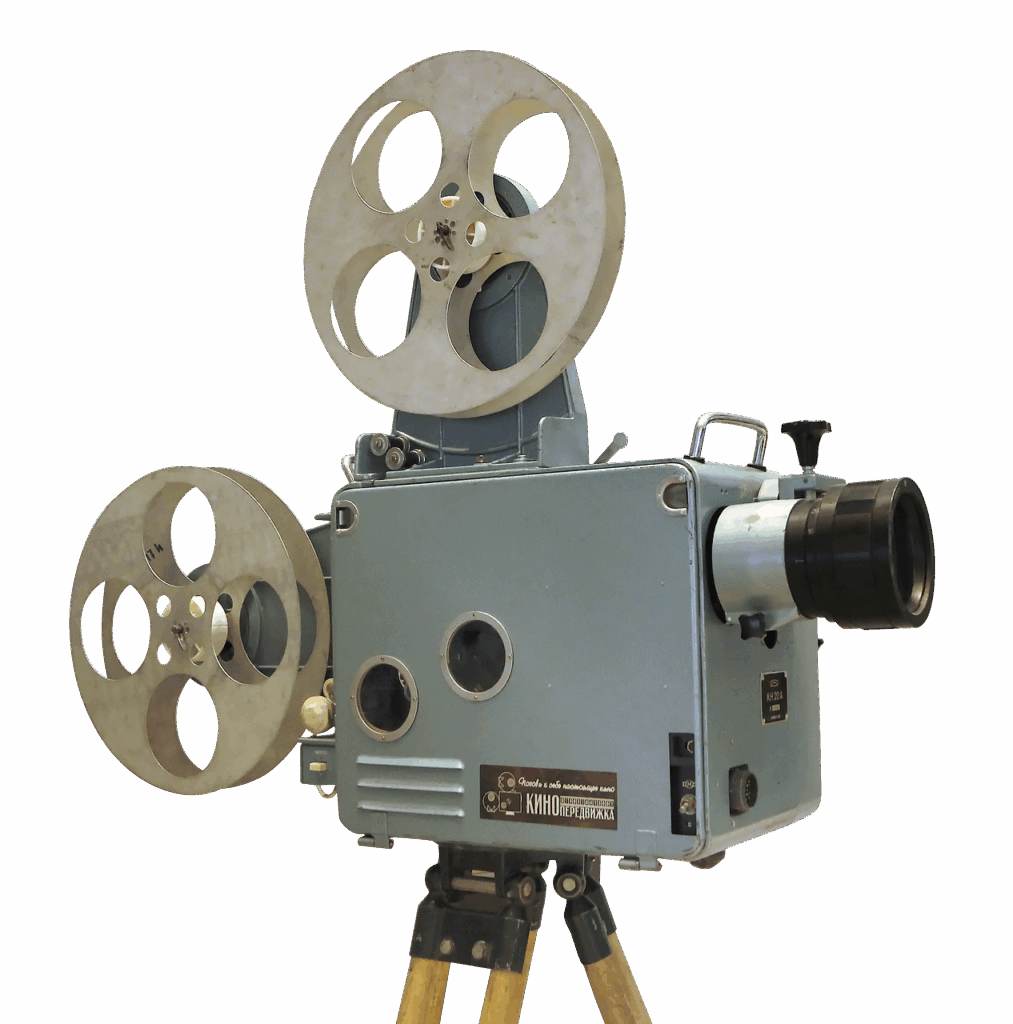
7. **Life of Brian (1979)**Comedy, my friends, is a powerful and often dangerous beast, especially when it dares to tread on sacred ground. In 1979, the legendary British troupe Monty Python did just that with *Life of Brian*, a satirical take on the story of Jesus Christ that, unsurprisingly, inspired intense protests and outrage around the world. Despite the controversy, it remains one of their funniest and most incisive works, mercilessly skewering religious norms and the people who adopt those norms for various ends.
The film’s premise focuses on Brian, a baby born in the manger next door to Jesus, who through a series of absurd coincidences, eventually becomes a reluctant, would-be messiah. This wasn’t just a gentle poke at organized religion; it was a full-blown comedic crucifixion of religious fervor, dogma, and the often-absurd human tendencies that blossom around faith. Its genius lay in highlighting hypocrisy and human folly, not necessarily in attacking faith itself, but its method was undeniably provocative.
From the infamous, petty squabbles between the Judean People’s Front and the People’s Front of Judea (because, you know, every revolutionary movement needs a rival faction doing *exactly* the same thing), to the hilariously grim scene of women disguising themselves as men just to get in on the stoning action, *Life of Brian* pulled no punches. These gags, while brilliant in their time, demonstrate a level of irreverence towards religious institutions and deeply ingrained social practices that would face immense hurdles today.
Could you imagine a studio greenlighting such a project now, especially in our hyper-connected, often hyper-sensitive world where every tweet can spark a global debate? The sheer volume of potential backlash, coupled with a cultural landscape far more attuned to religious sensitivities, would likely stop any project like this before anyone could even greenlight it. *Life of Brian* is a comedic masterpiece, but its brand of boundary-smashing humor is now firmly in the cinematic rearview mirror.
Read more about: Unearthing the Gems: 14 Must-Watch Underrated Clint Eastwood Movies for Every Fan and Cinephile

8. **Manhattan (1979)**Ah, Woody Allen. A name that, for many, has become synonymous with complicated legacies and even more complicated viewing experiences. While it’s easy to say that most of his films couldn’t be made today due to the distinct personal streak in his work and, well, everything else, *Manhattan* stands out as a prime example of a film whose core premise is simply unworkable by modern standards. Once held up as one of Allen’s best, this movie’s charm has significantly diminished under the scrutiny of contemporary ethics.
The crux of the matter, and the undeniable reason *Manhattan* is on this list, lies squarely in the central romantic relationship between Allen’s character, Isaac, and Mariel Hemingway’s Tracy. This wasn’t just a case of an age gap; it was a vast generational chasm. Tracy, as the context points out, is “much younger. As in 17 years old.” The film is surprisingly candid about Isaac dating a literal high-school student, treating it with a kind of romanticized nonchalance that sends shivers down your spine today.
What makes it even more unsettling is how Isaac, despite his internal conflicts, tries to “reclaim her as his true love” in the film’s George Gershwin-scored finale. Adding another layer of discomfort, Mariel Hemingway herself claimed in a 2015 memoir that Allen tried to seduce her on set, a detail that casts a deeply unsettling shadow over the on-screen dynamic. This blurring of lines between art and life only amplifies the contemporary unease with the film’s central romantic plot.
Even if you were to somehow strip away all the external controversies surrounding the director, the raw, uncomfortable truth is that the central relationship of *Manhattan* would simply not fly today. Society’s understanding of consent, power dynamics, and what constitutes an appropriate relationship between an adult and a minor has evolved dramatically. A film that casually romanticizes a high-school student dating an older man would face insurmountable criticism, making *Manhattan* a clear relic of a bygone era.
Read more about: Marshall Brickman, Oscar-Winning Screenwriter and Broadway Force, Dies at 85

9. **Airplane! (1980)**Buckle up, because we’re talking about a film so iconic, the American Film Institute literally crowned it one of the 10 greatest American comedies of all time: the one and only *Airplane!* This 1980 parody of disaster movies, from the ingenious minds of Jim Abrahams, David Zucker, and Jerry Zucker, pioneered a rapid-fire, gag-a-second approach that still keeps audiences laughing today. It’s a masterclass in absurd humor, packed with references to 70s pop culture that firmly plant it as a “product of its time.”
Most of *Airplane!’s* jokes still hold up brilliantly, showcasing timeless comedic genius. However, among the relentless barrage of gags, there’s one particular bit that, when viewed through a modern lens, feels less like a comedic masterpiece and more like a “wow, they really did that?” moment. It’s a clear indicator of how far comedic sensibilities have shifted, especially concerning the portrayal of mental distress and physical interaction.
Picture this: a passenger, completely unhinged by the stress of their airborne predicament and the illness spreading around them, starts freaking out in hysterics. Her solution? A seemingly endless line of fellow passengers, both men and women, queuing up to “shake sense into her. Or smack sense into her. Or hit sense into her with a crowbar. And so on.” The visual escalation of different people physically assaulting a distressed woman, presented as a cumulative punchline, is undeniably jarring today.
This isn’t just about evolving sensibilities around physical comedy; it’s about a more nuanced understanding of mental health and the problematic humor derived from seemingly “fixing” a hysterical woman through escalating physical assault. While the film’s writers and directors took a gung-ho approach, throwing as many jokes as they could, this particular gag is one that filmmakers wouldn’t even try to get away with now, highlighting a significant and welcome evolution in comedic ethics.
Read more about: 20 Iconic Movie Posters: Visual Art That Defined Cinema
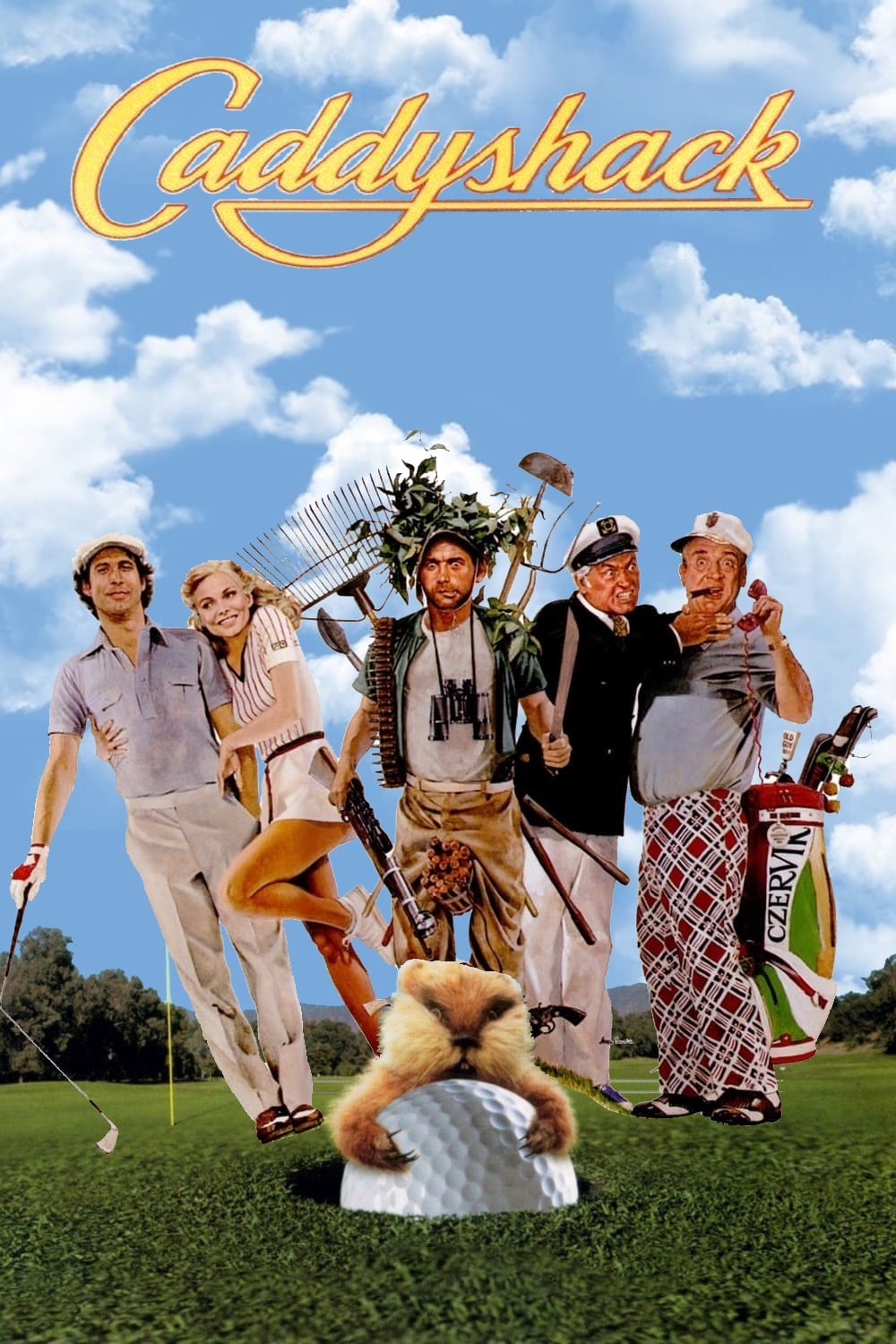
10. **Caddyshack (1980)**Alright, let’s head to the greens for another iconic entry: *Caddyshack*. This 1980 gem brought together a comedic dream team, featuring *Saturday Night Live* alums Chevy Chase and Bill Murray, stand-up legend Rodney Dangerfield, and TV sitcom star Ted Knight. It’s the quintessential “snobs vs. slobs” comedy, perfectly capturing the spirit of rebellion against stuffy authority figures at a golf club. For many, it’s a nostalgic trip back to the dawn of the raunchy comedy era.
While the timeless theme of the “little guy” taking down the pompous elite still resonates (perhaps even more so today, with our collective disdain for the ultra-rich!), *Caddyshack*, like many films of its era, is riddled with dialogue that would simply not make it past a modern script supervisor. It’s not just the general “blue” language, which was par for the course in early 80s R-rated fare; it’s the casual inclusion of epithets and expressions that are “shocking for no good reason.”
The context clearly highlights a moment when Ted Knight’s nephew, in a jarring attempt at casual coolness, describes some pot that he bought as being good because he acquired it from “a Black person.” This line, tossed out flippantly, is a stark example of how casually racist language could be embedded in mainstream comedy dialogue, reflecting a societal acceptance of such remarks that is thankfully no longer present in today’s public discourse.
This isn’t merely about “blue” language; it’s about casually embedding racial prejudice into a comedic exchange, presenting it as an unremarkable observation. While this might reflect the way some people spoke four decades ago, it’s certainly “not how we want to hear characters talk in mainstream comedy now.” *Caddyshack*’s enduring popularity speaks to its overall comedic brilliance, but these specific elements firmly anchor it in an era whose less enlightened humor we’re happy to leave behind.
Read more about: The Stale Sequel Syndrome: 12 Iconic Film Franchises That Returned Way Past Their Prime
As we close the book on these 10 comedic relics, it becomes abundantly clear that humor, like fashion and technology, is not immune to the relentless march of time. These films, once titans of laughter, now serve as fascinating, sometimes uncomfortable, markers of how far our societal conversation has progressed. They aren’t just movies; they’re cultural artifacts, showing us not only what made us laugh then, but why we’re so glad we’ve moved beyond some of those laughs today. Here’s to comedies that keep us laughing for the right reasons, and that continue to push boundaries with a conscience.


